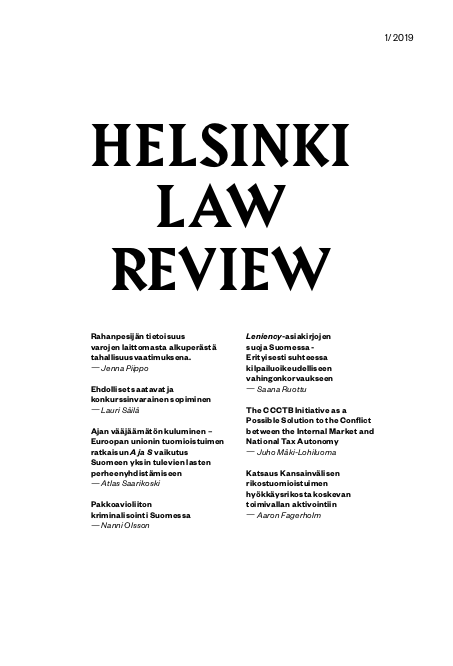The inexorable passage of time
The impact of the ECJ ruling A and S on the family reunification of unaccompanied minors arriving to Finland
DOI:
https://doi.org/10.33344/vol13iss1pp56-91Keywords:
European law, discrimination, family reunification, best interest of the child as a primary consideration, unaccompanied minor, attaining the age of majorityAbstract
On 12 April 2018, the European Court of Justice (ECJ) ruled that refugee children have the right to be reunited with their parents when they enter a Member State as minors and attain the age of 18 during their asylum procedure. The ECJ judgment forced Finland to amend its Alien Act according to which unaccompanied children lose their right to be united with their parents if they turn 18 before the family reunification decision is made.
According to the newly accepted Finnish government proposal, the right to family reunification of an unaccompanied child arriving to Finland will differ depending on the child’s residence permit. This article asks whether such practice is discriminatory. To answer the question, the article examines the requirement of minority set in Finnish Aliens Act in light of the recent practice of the ECJ and the ECtHR.
The argument is that the legal status and the obstacles for enjoying family life of unaccompanied children with different residence permits are rather similar. Therefore, the different treatment enabled by the newly amended Aliens Act discriminates children with weaker residence permits who lose their right to family reunification without an acceptable reason.
Unaccompanied children can only enjoy their right to family life through family reunification. Their vulnerable position and the State’s obligation to primarily consider the best interest of the child in all actions concerning children also play a decisive role. The article concludes that guaranteeing an effective right to family reunification for all unaccompanied children is most in line with fundamental rights, human rights and EU law.



